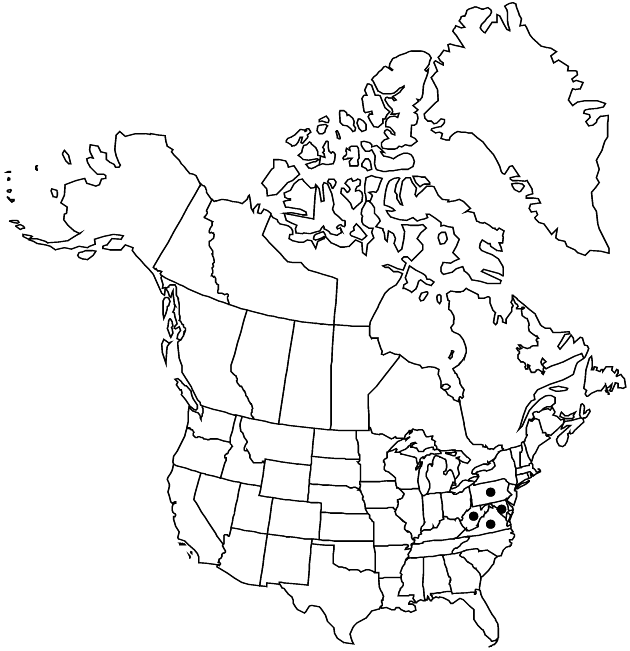Packera antennariifolia
Phytologia 49: 45. 1981.
Perennials, 20–40+ cm; rhizomatous (rhizomes branched, horizontal to suberect). Stems 1 (sometimes from rosettes, rosettes sometimes clustered), tomentose. Basal leaves petiolate; blades broadly lanceolate to elliptic or spatulate, 20–40+ × 10–20+ mm, bases tapering, margins entire or subentire to dentate distally (faces tomentose). Cauline leaves abruptly reduced (petiolate or sessile; narrowly lanceolate to sublyrate, sharply toothed to pinnatisect or entire). Heads 6–12+ in corymbiform arrays (lateral cymiform arrays sometimes originating in leaf-axils). Peduncles bracteate, densely lanate to sparsely tomentose. Calyculi inconspicuous. Phyllaries 13 or 21, green, 5–7 mm, densely tomentose (apices scarious). Ray-florets 8–10 (–13); corolla laminae 5–10 mm. Disc-florets 25–35+; corolla-tubes 3–4 mm, limbs 1.5–2 mm. Cypselae 1–1.5 mm, hirtellous on ribs; pappi 4–5 mm. 2n = 46.
Phenology: Flowering late Apr–late May.
Habitat: Slopes on shale barrens
Elevation: 300–800 m
Distribution

Md., Pa., Va., W.Va.
Discussion
Packera antennariifolia is known only from shale barrens or shale-derived soils in central Appalachia. Plants growing on steep slopes have stouter, more horizontal caudices and more extensive fibrous roots than specimens from other locations. Specimens from shale-derived soils, not growing directly on shale barrens, have weakly lobulate leaves and noticeably less hairiness.
Selected References
None.